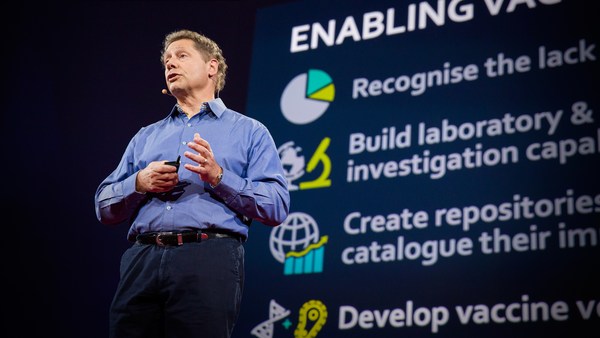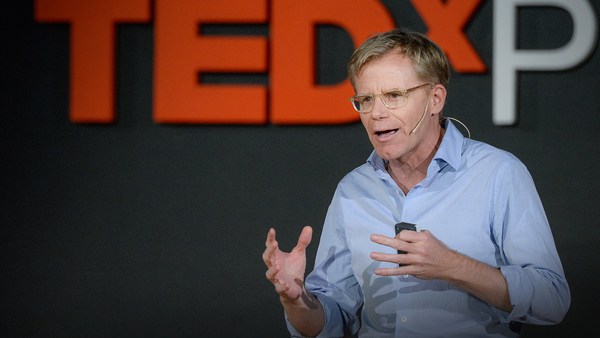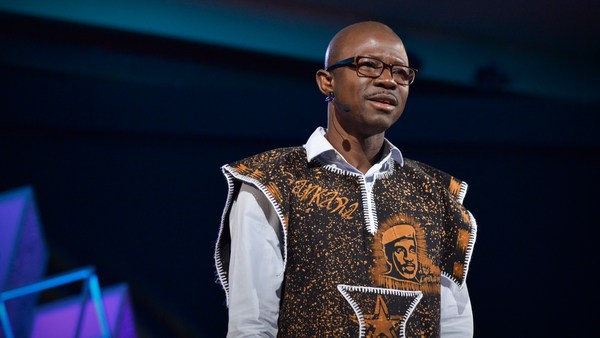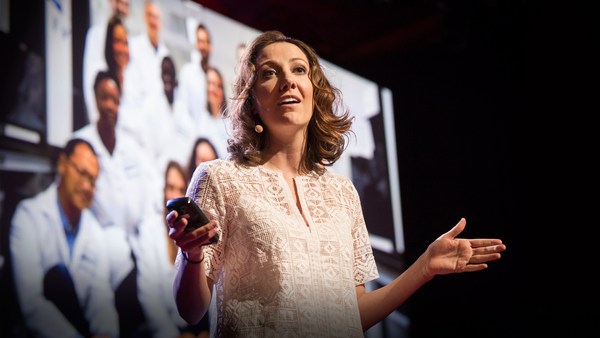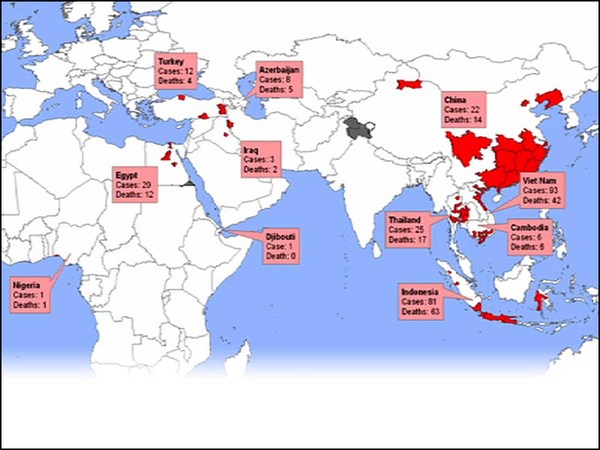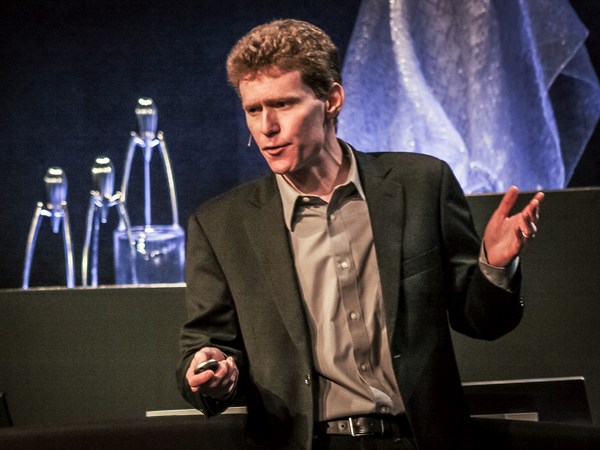John Werner: What are some “Aha”s, some things counterintuitive that you know that people may not realise about this whole situation we’re in? What good is going to come out of these tough times? Pardis Sabeti: Well, I think the pandemic got the world’s attention
about the risk of infectious diseases, and I think we put a lot of things in place that are going to help us in the future. We also identified a lot of gaps in the system that need to be addressed before potentially a worse version of this virus or a worse virus comes out. So, it has put us on high alert. It has put the attention where it needed to be, where it always needed to be, and it’s a question whether or not we capitalize on it.
JW: If you could go back and do something different over the last two years,
is there anything you would have stood on top of a mountain and say
“follow me this way”? PS: Yeah, sure, you know people did, and there was a lot of noise in the system so, I think for me, actually, this is an instance where there are so many people working and like the tide was just overwhelming, that I kind of got small and just addressed the things I could address. So, I think it’s an interesting thing when every person was a COVID expert. Any person with any background was advising their school, their community. So it was just different. It was a different place where I wasn't trying to stand on top of a mountain. We were just trying to stay close to it and see what we could do. JW: Talk about your team, how have you made up your team? It’s an awesome team. What are you looking for in bringing the talent together? How do you help them solve problems? Do you take credit for what they do? Do they take credit for what you do? What’s the dynamic there? Because you’re not an industry, but you’re doing some real important work. PS: I run a lab based at the Broad Institute. It’s an awesome collective of folks from lots of different backgrounds, from physicists, computer scientists, geneticists, virologists, folks in public health and medicine, so it’s a collective team. JW: How many? PS: You know, it’s close to 60 now. So, it’s a big group for an academic lab, but it’s kind of got a lot of different components to it, and just a lot of management policy, all sorts of pieces to it. So it’s sort of its own centre now, but we work collectively. And I think one of the greatest joys of being a professor is supporting, celebrating, and recognizing the contributions of the people that I work with. I try to really celebrate them. I’m really proud today, one of my team members was just profiled in The New York Times, and that to me is the great success, where you are able to showcase the folks in your lab, and what they are doing. JW: So you’re one of the Time 100. Has that been consistent or just one year, and then you got dropped off? Did that change who you were, how you saw yourself, how people saw you? Or who the hell cares? PS: It was an interesting piece of recognition. It happened during the Ebola outbreak. We got -- I say we -- my lab got that recognition for sharing genomic data very early that showed that the virus was mutating, it was transmitting from human to human, and the fact that we shared the data publicly right away. And for me, it was a very strange moment in time because it was a lot of personal recognition on the back of tragedy. And so you don’t feel good about that, right? What I was proud of is that we were being recognized for the fact that we shared our data pre-publication to the world. We were actually trying not to get recognition, which is what got recognition, so it was sort of an interesting piece. But since that time, I think we still work the same way, which is we're not trying to, you know, we’re just trying to find where we can contribute in meaningful ways. And like I said, think small, think about each piece of the puzzle, because there is a long game. You know, when you talk about, what do we need to do, what do we need to think about in the context of what this is, and what it’s told us. There are a lot of gaps in the system, and one of the biggest is our culture. The fact that we humans, we Americans, we can’t get it together, we can’t trust each other, we don’t talk to each other the right way. Those are the big things we need to think about. To me, that’s all I care about. I am thinking about how do we solve those problems so we work better together? The fact of the matter is an outbreak is a very bizarre event that brings out sometimes the worst of us, right? There’s an insidious, deadly threat that weaponises your neighbour against you. And there are also perverse capitalistic incentives that take over, so people are going for money, fame, recognition, and all of those things. There is a lot that makes it really hard to do good work in this time, that we need to sort out. JW: Great, so three questions: One, what is it like being in a rock band? Two, how is the ecosystem in Boston? Some have said we won the Stanley Cup once recently, and are mad we’re not winning it more. Some say we’re winning the Stanley Cup in Life Sciences, it is a good ecosystem. Or are people backstabbing and hiding books in the library? And third, we have some mutual friends, and some of them say you’re the smartest person they know, and your sister and so on. How do you become you? You were one of the child prodigies that grew up to run a lab of 60 students, some of the most important work, you look like you’re 25. How did you get to that role, for people who have daughters who want to be leaders in the STEM world, who want to have impact? How do they become you? PS: That’s a lot of questions, where do we start? JW: Rock band, ecosystem, how do you become you? PS: I like being in a rock band. I think in general, it’s for me, that kind of creativity, and being in a band is what keeps me going in times like this. I think that there’s a lot of creativity in science too, and I think it all comes together. So for me, I really encourage my students to have outlets, and that’s really important, and I enjoy that part of myself. As far as the Boston ecosystem, it’s amazing, it’s got some of the most brilliant people in the world. We’re seeing it today, and it’s amazing, and this collective you’ve created is a showcase of that. When I look at all the things that we’ve accomplished in this outbreak, it’s overwhelming. There are many places where we could have been more coordinated, more working together, and there are a lot of silos here in Boston. There are many things that have happened that have been breakthroughs. Something called the Massachusetts Consortium for Pathogen Readiness, that stemmed from Harvard Medical School, but essentially became a collective of schools across Massachusetts, was remarkable. So there was a lot of collective energy of working together. But I think that one of the things we don’t do as well as we could is work together well, and each play a part, you know, be in a band, and not feel like each person needs to be a singer-songwriter and lead their own thing. JW: You are the lead singer in your band? PS: I am, but I actually joined to be the bass player, so I prefer not that role. JW: Tell them the name. PS: It’s called Thousand Days. JW: What’s your background, and how do you become you, the last question? Cool glasses! PS: Oh, thank you. Well, I was born in Iran. JW: Persian diaspora. PS: There you go. I came here as a child of the revolution. JW: We have a dentist later tonight, in the supernova block, who is Iranian. PS: OK, yeah, there’s a lot of good dentists, doctors, and you’re Persian, so that’s fantastic, I’m excited about that. I came as a refugee. I think there's a lot of benefits you have when you come, when you’re thrust about in the world and everything. All the bets are off, right? So I got to become a scientist who plays in a rock band, and does a lot of other random things. Because I was not born of this culture, I didn’t know that girls don’t do math. I didn’t know that you can’t just walk into a band, or play football. I didn't know any of those things, so I just did them. So I think that is the amazing thing about America, the melting pot that it is. And I think it’s what I love about my upbringing here and why I’m so motivated and inspired by it, but also protective of it. I see it going a little wonky right now, and it needs a little help and love. JW: Great, thank you. One of my favourite doctors. Thank you very much. (Applause)
